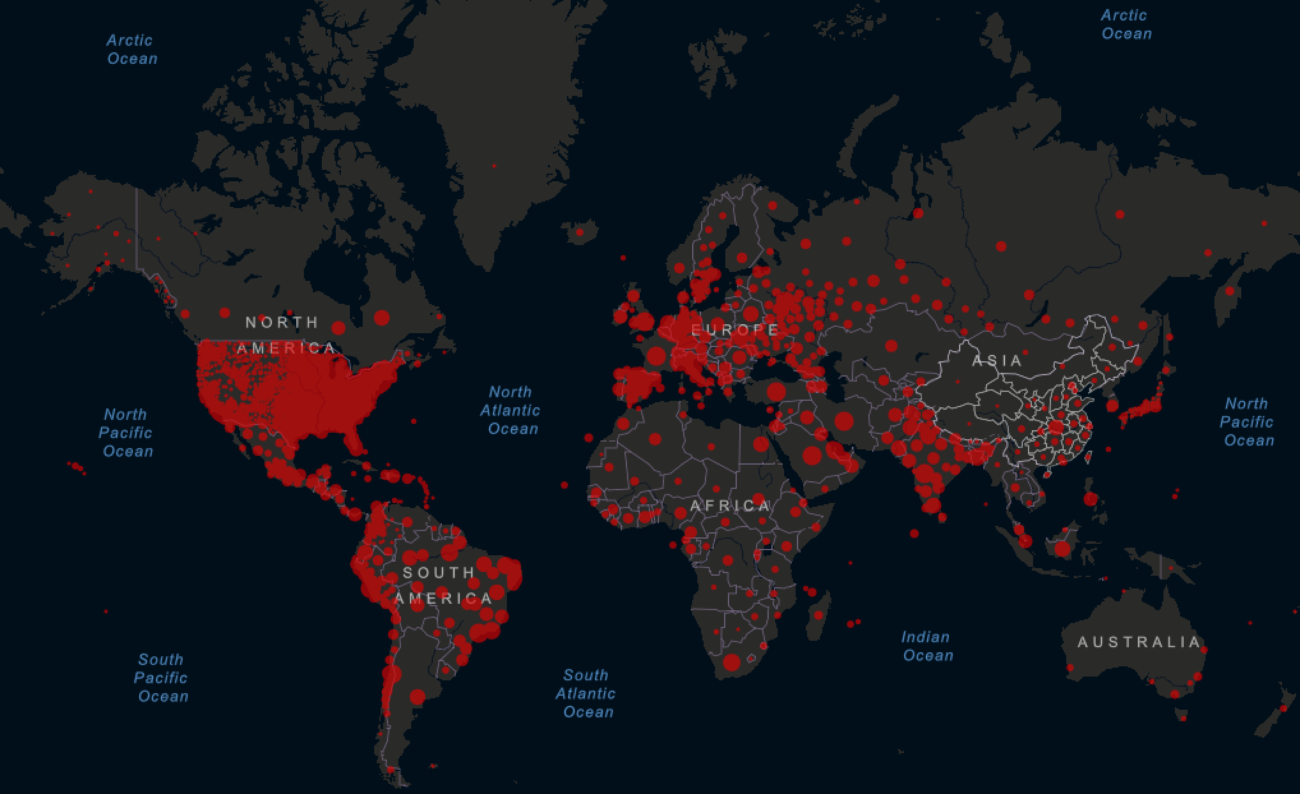Worldwide COVID-19 cases surpass 10-million mark
Experts warn of waves of infection until vaccine is available
As of Sunday, 28th of June, there have been 10,015,904 confirmed cases of COVID-19, including 499,486 deaths, according to the latest tally of the Johns Hopkins University and Medicine.
The United States holds the world’s highest number of the infected, with more than 2 million recorded cases of the highly contagious coronavirus. A total of 125,559 people have died of the disease.
Here in the Caribbean region, the Dominican Republic is the most afflicted by COVID-19, with 30,619 cases, including 718 deaths.
According to the World Health Organisation, the latest statistics is “roughly double the number of severe influenza illnesses recorded annually.”
The figures come as several countries worldwide have decided to ease their lock downs and quarantine precautions in a bid to revive their economies that have been heavily crippled by the pandemic.
In a Reuters article, experts predict that the resurgence of infections could become a pattern in the coming months and into 2021.
Moreover, the pandemic has now entered a new phase, “with India and Brazil battling outbreaks of over 10,000 cases a day,” Reuters further reported.
What doctors have learned about fighting COVID-19
In a separate Reuters article, healthcare experts revealed a number of observations about the deadly virus and how it affects the human body:
- Patients are at increased risk of blood clots, and blood thinning agents can help.
- “Proning” – putting patients on their stomachs to relieve pressure on the lungs – can stave off the need for mechanical ventilation.
- Besides the respiratory system and lungs, the coronavirus can attack many other organs, including the heart, liver, kidneys, and brain.
- The most promising treatments so far seem to be the anti-viral remdesivir; dexamethasone, a steroid to treat the body’s inflammatory response to COVID-19; and plasma donated by patients who have antibodies to the disease.
- More widespread testing and quicker results helps relieve pressure on hospitals.
- Information-sharing among health professionals worldwide is crucial.
- Prevention is critical. Doctors are relying on the public to do their part with good hygiene, masks and social distancing.
And here are some of the mysteries the medical experts and physicians are yet to uncover:
- Exactly which treatments will work for which patients.
- How quickly some treatments will gain widespread distribution, especially remdesivir. How long it will take for COVID-19 patients to recover.
- The long-term effects of the infection.



